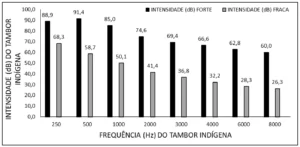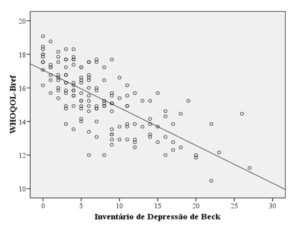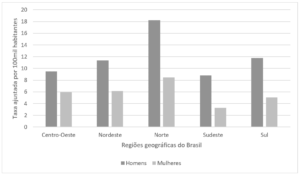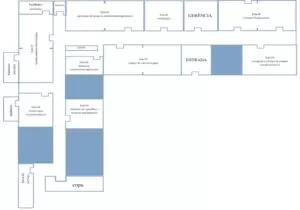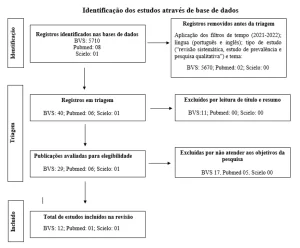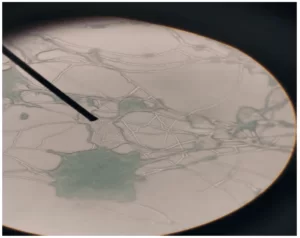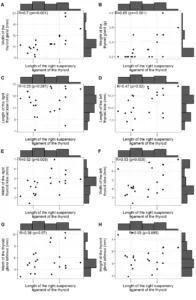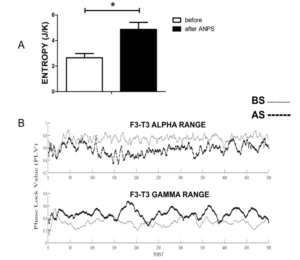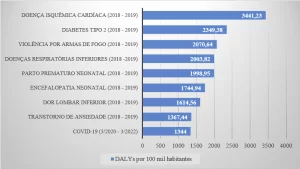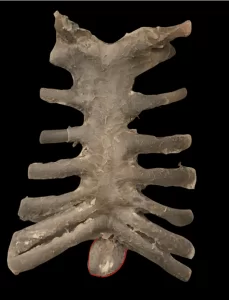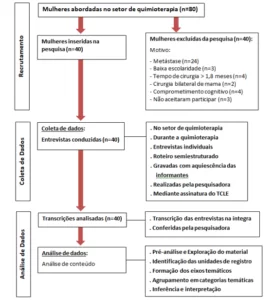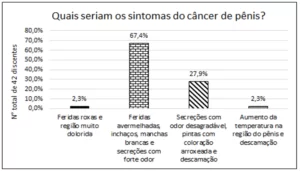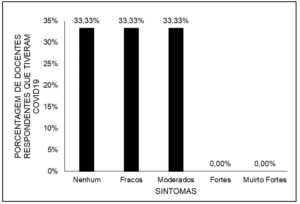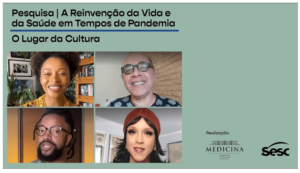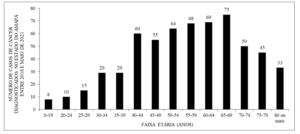REVIEW ARTICLE
PINTO, Andressa Ambrosino [1], ARAÚJO, Maria Helena Mendonça de [2], BITENCOURT, Graziele Ribeiro [3], BOSSATO, Hércules Rigoni [4], BRITO, Irma da Silva [5], COELHO, Karla Santa Cruz [6], DIAS, Cláudio Alberto Gellis de Mattos [7], DENDASCK, Carla Viana [8], FECURY, Amanda Alves[9], DAHER, Donizete Vago [10]
PINTO, Andressa Ambrosino. et al. The instituted and the real in the training of community health agents: a scoping review. Revista Científica Multidisciplinar Núcleo do Conhecimento. Year. 08, Ed. 06, Vol. 04, pp. 95-125. June 2023. ISSN: 2448-0959, Access link: https://www.nucleodoconhecimento.com.br/health/health-agents, DOI: 10.32749/nucleodoconhecimento.com.br/health/health-agents
ABSTRACT
Objective: To map the formation processes and ongoing education actions experienced by Community Health Agents (CHAs) in the context of family health, anchored in the concept of culture. Methodology: Scope review following the Joanna Briggs Institute (JBI) methodology and guided by the Preferred Reporting Items for Systematic Reviews and Meta-Analyses Extension for Scoping Reviews (PRISMA-ScR). The search in databases such as BVS, EBSCO – Academic Search Premier, CINAHL, GreenFILE, SocINDEX, Embase, ERIC, Global Index Medicus, PUBMED, Scielo, Scopus, WOS, took place in November and December 2022. The search terms were: Community Health Workers, Professional Training, Continuing Education, Family Health Strategy, Primary Health Care. Studies analyzing training experiences and actions of Permanent Education in Health (PEH) for CHAs in the context of family health were included. Endnote and Rayyan software were used in managing the selection of findings. The review protocol was registered on the Open Science Framework (OSF). Results: The sample included 25 studies, generating two categories: The primacy of instrumental technical training culture; and The biomedical culture guiding PEH. CHA training involves disinvestment and invisibility, focusing on the biomedical model. On the other hand, even if sporadic, PEH actions are guided by emerging health themes. Final Considerations: The formative processes and PEH for CHAs involve paths of construction and deconstruction, progress, and setbacks, based on a culture that often restricts established rights.
Keywords: Community Health Agents, Training, Permanent Education in Health, Primary Health Care, Scope review.
1. INTRODUCTION
This scoping review conducted a literature mapping regarding the formation processes and actions of Permanent Education in Health (PEH) experienced by Community Health Agents (CHAs) working in Primary Health Care (PHC), specifically in the Family Health Strategy (FHS). It is noteworthy that this mapping will unveil the meanings and pathways of human resources training in the healthcare field, especially for CHAs, aligning with the guiding proposals of the National Policy of Permanent Education in Health (PNEPS) (CECCIM, 2018; 2019). Therefore, grasping and understanding the formative processes and PEH actions offered and experienced by CHAs means investing in the qualification of the Unified Health System (SUS).
The analysis of the findings will be guided by the concept of culture advocated by Langdon and Wiik (2010). Readings, as well as previous reflections and research on the topic, indicate a gap between what is established in official documents and what is actually implemented in the everyday context of CHAs’ training and actions in permanent education. This fact drove the conduct of this study. In this regard, by analyzing the meanings, experiences, values, norms, and daily practices carried out by CHAs, we will understand their formative culture and culture of permanent education, since according to Laraia (1986), culture must be learned, with the premise of capturing experiences and needs. Langdon and Wiik (2010, p.175) also contribute by defining culture as:
Um conjunto de elementos que mediam e qualificam qualquer atividade física ou mental, que não seja determinada pela biologia, e que seja compartilhada por diferentes membros de um grupo social. Trata-se de elementos sobre os quais atores sociais constroem significados para as ações e interações sociais concretas e temporais, assim como sustentam as formas sociais vigentes, as instituições e seus modelos operativos. A cultura inclui valores, símbolos, normas e práticas.
In the Brazilian Unified Health System (SUS), the Community Health Agent (CHA) is the professional who operates at the intersectoral interface of health, social assistance, education, and the environment, carrying out health promotion and disease prevention actions through health education processes. They prioritize access to actions and services related to information, social promotion, protection, and citizenship development, within the social and health contexts. They primarily work within the community under the supervision of local management (BRASIL, 2004a; 2006a), providing user and family reception at health units, active search in cases of treatment abandonment, registration of families within their territory, Home Visits (HV) to build community situational diagnoses, and records and interventions with the Family Health Team (FHT) in situations of vulnerabilities and risks (UFRGS, 2021).
The Ministry of Health (MS) defines health workers’ training as regularly institutionalized formative actions, adopting a curriculum matrix with contents that enhance education and contribute decisively to the qualification and implementation of the National Health Policy (PNS) (BRASIL, 2004a). As for Permanent Education in Health (PEH), it refers to procedural educational strategies carried out within health services with the aim of capacitating professionals to address daily demands and transformations in service practices (BRASIL, 2018).
Regarding the training of CHAs, the year 2004 stands out when the Technical Curricular Reference for Community Health Agent (RCT-ACS) was created to underpin the training to be implemented by the Technical Schools of the Unified Health System (ETSUS), mostly established two decades ago. To complete their training as a CHA, professionals needed to go through three curriculum stages totaling 1,200 hours (BRASIL, 2004a). However, the major challenge in CHA training continues to be the completeness of curriculum integration.
In 2014, aiming to streamline the training process and meet new and emerging SUS demands, such as providing person-centered care and managing network-based assistance, with PHC as the entry point, Guidelines and Instructions for CHA Training in Care Lines (200 hours) were developed (BRASIL, 2016). The challenge that led to training in Care Lines was an attempt to overcome the focus on disease-based assistance, which was prevalent until then.
In 2020, the Health with Agent Program (1,275 hours) was implemented to strengthen the SUS PHC policy through comprehensive training for CHAs and Endemic Disease Control Agents (ACE) (BRASIL, 2020; UFRGS, 2021). The challenge is to propose innovative pedagogical practices that promote multiprofessional and interdisciplinary integration between education and service.
Regarding PEH, only in 2004 was the PNEPS instituted by Ordinance No. 198 (BRASIL, 2004b), which emphasizes the relevance of health worker qualification. In 2007, Ordinance No. 1,996 (BRASIL, 2007) was launched, outlining the guidelines for implementing PNEPS and addressing the financing of capacitation actions. The challenge regarding PEH actions is to overcome specific proposals and make them political and institutional propositions.
PEH as a form of training within services brings the benefit of critical and reflective learning, clarifying doubts and adding new knowledge according to the experienced issues. This prompts CHAs to question their way of acting, formulating questions that will be answered through reflections, helping them understand and renew experiences for change production through continuous updates and ongoing learning (DOS SANTOS; FRANCO; SOUZA, 2020). Another benefit of PEH is the improvement of the quality of care provided to the population by CHAs, given their continuous training (ROCHA; BEVILACQUA & BARLETTO, 2015).
In this sense, the objective was to map the formation processes and the actions of permanent education experienced by Community Health Agents in the context of family health, anchored in the concept of culture.
2. METHODOLOGY
A scoping review guided by the Joanna Briggs Institute (JBI) methodology and oriented by the Preferred Reporting Items for Systematic Reviews and Meta-analyses Extension for Scoping Review (PRISMA-ScR). This method allows for mapping key concepts and evidence, clarifying research areas, and identifying knowledge gaps (JBI, 2015). The review was also registered on the Open Science Framework (OSF) (link: osf.io/4axjk and DOI: https://doi.org/10.17605/OSF.IO/UZMHE).
To maintain the method’s reliability, the approach was developed through five structuring stages: (1) selection of research questions; (2) search for relevant studies; (3) study selection; (4) data extraction and analysis; and (5) grouping, summarizing, and presenting the results (MOHER; et al., 2009).
2.1 SELECTION OF RESEARCH QUESTIONS – FIRST STAGE
The PCC strategy was used, as proposed by JBI, where “P” (Population: CHAs); “C” (Concept: formation and PEH actions) and “C” (Context: PHC/FHS) were employed to construct the research questions: What are the formation processes and actions of permanent education experienced by CHAs in the context of family health? What type of culture underpins the formation and actions of permanent education for CHAs?
Inclusion criteria were adopted: Experiences related to the formation process and PEH actions of CHAs in the context of family health. No temporal limit was applied, and the languages of inclusion were Portuguese, English, and Spanish. Regarding study types, primary, empirical, quantitative, and qualitative research of any design or methodology were included. Exclusion criteria included studies involving the FHT and those addressing health contexts other than the Brazilian context. The sample excluded editorials, abstracts in proceedings, incomplete articles, review studies, documentary studies, and studies in the project phase or still without results.
2.2 SEARCH STRATEGY – SECOND STAGE
Starting with the PCC acronym, keyword and controlled vocabulary mapping was conducted using Descriptors in Health Sciences (DECS), Medical Subject Headings (MESH), and Embase Subject Headings (Emtree): Population: “Community Health Worker” OR “Community Health Workers” OR “Community Health Aide” OR “Community Health Aides”; Concept: “Professional Training” OR “Health Education” OR “Community Health Education” OR “Health Human Resource Training” OR “Continuing Education” OR “Continuous Learning” OR “Educational Technique” OR “Teaching Method” OR “Training Activity” OR “Training Technique”; and Context: “Family Health Strategy” OR “Family Health Program” OR “Family Health” OR “Primary Health Care” OR “Primary Healthcare”.
The search was conducted in November and December 2022 in the following databases: BVS, EBSCO – Academic Search Premier, CINAHL, GreenFILE, SocINDEX, Embase, ERIC, Global Index Medicus, PUBMED, Scielo, Scopus, WOS. Grey literature was retrieved through Google Scholar, a platform that yielded good results in a preliminary search conducted to determine the research trajectory.
2.3 STUDY SELECTION – THIRD STAGE
The results were exported from the databases and imported into the Endnote reference manager to remove duplicates. They were then loaded into the Rayyan software. Text evaluation was conducted by two reviewers with blinding through the Rayyan system, and in case of conflicts, they were assessed by consensus by the pair or by a third reviewer. The first selection considered title and abstract reading. Subsequently, the selected studies were retrieved in full for a complete text reading. The results of the search and the study inclusion process are shown in Figure 1: PRISMA-ScR Flowchart (TRICCO, et al., 2018).
2.4 DATA EXTRACTION AND ANALYSIS – FOURTH STAGE
For this stage, an instrument developed by the reviewers based on the JBI model was used. The characterization of training is presented in Table 1, and the mapping of training in Table 2; the characterization of PEH actions is presented in Table 3, and the mapping of PEH actions in Table 4.
The textual narrative analysis is structured according to Matias (2014), with five elements: plot, narrator, characters, space, and time. These elements guided the construction of the categories in this scoping review.
2.5 GROUPING, SUMMARIZING, AND PRESENTATION OF RESULTS – FIFTH STAGE
The results were organized and analyzed from a narrative perspective, in a figure (PRISMA-Scr Flowchart) and in tables. This set was discussed with the support of scientific literature relevant to the theme. It should also be noted that for differentiation and identification of the studies, they were assigned an alphabet letter followed by an Arabic numeral, such as: E1, E2, E3, …, etc.
It is emphasized that there was no need for ethical approval since the data used are secondary and in the public domain. However, all copyright rights were respected, indicating citations and references appropriately.
3. RESULTS
A total of 1,353 studies were found. 733 duplicates were removed. There were 620 abstracts for reading, with 418 excluded for reasons related to Population (n=70), Concept (n=322), and Context (n=26), totaling 202. This total of abstracts was reread, and 117 were eliminated as they did not address the research questions, resulting in a total of 85 studies read in full. Among these, 60 were not considered for the final analysis due to not meeting the criteria for Population (n=12), Concept (n=34), and Context (n=14). Thus, the textual corpus comprised 25 studies: 05 related to the formation process and 20 related to PEH actions. Figure 1 below represents the PRISMA-ScR Flowchart of the research.
Figure 1: PRISMA-ScR Flowchart
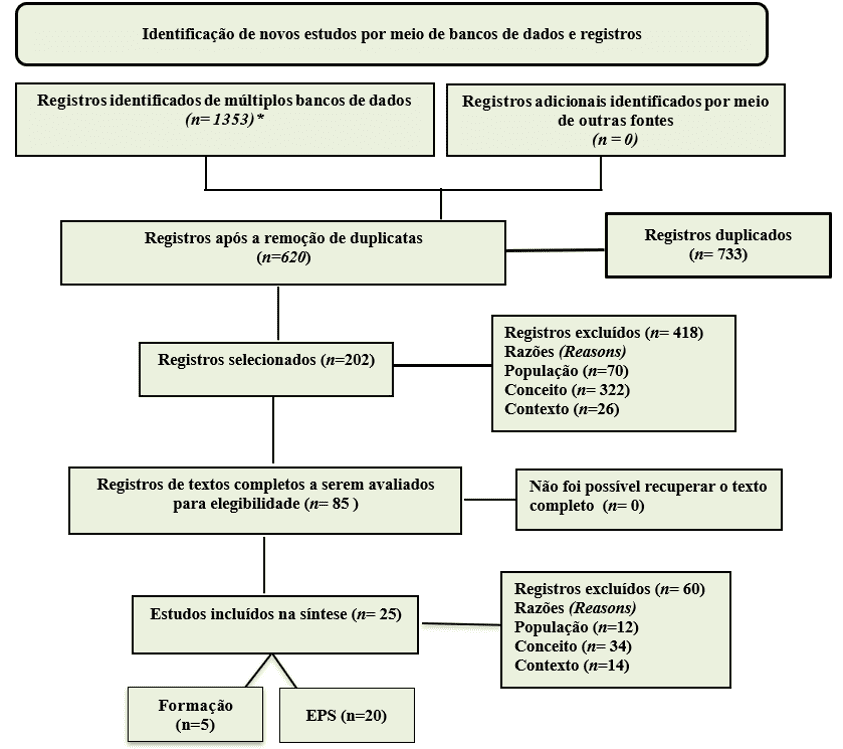
The presentation and characterization of the findings occurred in two moments: Firstly, Tables 1 and 2 were sampled, which analyze and characterize the studies on the institutionalized training processes of CHAs; Then, Tables 3 and 4 were highlighted, with analyses of studies regarding the experienced actions of PEH.
Table 1: Characterization of data regarding Training
| TITLE/AUTHORSHIP/YEAR/JOURNAL | APPROACH | OBJECTIVE | TECHNIQUE | RESULTS/CONCLUSION |
| E1- Estratégia do Programa Viver a Vida para a formação de ACS como educadores sociais para atendimento comunitário em saúde mental/ LOYOLA, Cristina; ROCHA, Sebastião/ 2007/ Rev. de Enf. EEAN | Qualitative/ Experience Report | Expand knowledge in mental health care | NI | Expansion of knowledge and resolution in the field of mental health./ Mental health care is a task that must start and end in the community. |
| E2- ACS: formação, inserção e práticas/ NASCIMENTO, Elisabet P. L.; CORREA, Carlos R. da S./ 2008/ Cad. de Saúde Pública | Qualitative/ Descriptive Study | Identify the contributions of the CHA training course | Focus group | Production of more critical and reflective, autonomous, and empowered professionals./ Training was crucial in building skills and competencies, consolidating the Family Health Program (FHP)/Paidéia. |
| E3- Reflexões acerca da atuação do ACS nas ações de saúde bucal/ HOLANDA, Ana L. F. de; BARBOSA; Aldenísia de A.; BRITO, Ewerton W. G. B./ 2009/ Ciência e Saúde Coletiva | Qualitative/ Experience Report | Showcase the experience of the CHA qualification course | Classes, seminars, dramatizations, interactive presentations | Continuous training on topics related to the community’s main needs is important./ The importance of teamwork is emphasized.
|
| E4- Formação técnica do ACS: desafios e conquistas da ETSUS do TO/ SILVA, Clemilson A. da; et al./ 2009/ Trabalho, Educação e Saúde | Qualitative/ Experience Report | Present the experience of ETSUS in TO | Healthcare scenarios as learning spaces | To train professionals to work as mid-level technicians within the FHT, equipping them for professional practice./ Strengthening the training institution to meet the demands of the SUS. |
| E5- Formação do ACS na perspectiva do saber local de populações ribeirinhas/ LOBATO, Rosane V.; et al./ 2021/ Enf. em Foco | Qualitative, descriptive | Analyze the training of CHAs in riverside teams | Interview | Two categories emerged: the training process; local knowledge in training and professional practice./ The training process needs to be implemented considering the culture of the riverside population. |
Source: Developed by the authors, 2023.
Table 2: PCC – Mapping regarding Training
| POPULATION | CONCEPT | CONTEXT/ TRAINING ORGANIZER | RECURRENT AND EMERGING THEMES |
| CHAs | Training process | Context: Training and Education Centers, Family Health Strategy (FHS), Municipal Health Departments (MHDs), Universities, and the Family Health Training Hub. Training organizer: Nurses, dentists, social workers. | Recurrent: CHA roles, teamwork, health education, mental health.
Emerging: Community participation and mobilization, ecosystem and environmental health, cultural diversity/riparian populations, ergonomics at work, health and prevention of occupational accidents. |
Source: Developed by the authors, 2023.
Table 3: Characterization of data regarding PEH actions
|
TITLE/ AUTHORSHIP/ YEAR/ JOURNAL
|
APPROACH | OBJECTIVE | TECHNIQUE | RESULTS/CONCLUSION |
| E6- Development and use of an educational game on the prevention of respiratory diseases in the follow-up of children under 5 years for the training of CHAs/ ANDRADE, Raquel 2004/ Dissertation EERP – USP | Qualitative/ descriptive, intervention | Develop an educational game on childhood respiratory diseases | Pre and post-test, field diary, educational game | The methodology used involved playful aspects, facilitating participation and interaction among the CHAs./ It proved to be effective as a methodological process to be used in PEH activities. |
| E7- Rodas de conversa sobre o trabalho na rua: discutindo saúde mental/ RIOS, Izabel C./ 2007/ PHYSIS: Rev. de Saúde Coletiva | Qualitative/Experience Report | Discuss relevant mental health topics for daily work | Conversation circle, case discussion | Application and discussion of mental health concepts. Additionally, the role and identity of the CHA./ PEH is fundamental as support for the development of the CHA’s work. |
| E8- A EPS como possibilidade no diagnóstico precoce da TB/ DUARTE, Sebastião J. H.; et al./ 2011/ Rev. Arquivos Catarinenses de Medicina | Study
Descriptive |
Highlight PEH as a strategy for the early identification of TB symptomatics | Conversation circles, classes, active search, application of questionnaires in home visits | Allowed the identification of users with suspected TB./ PEH was relevant for detecting new TB cases. |
| E9- Capacitação do ACS na prevenção do câncer de colo uterino/ SILVA, Tábata L. da; et al./ 2012/ Rev. Brasileira de Educação Médica | Qualitative/
Experience report |
Report the training experience of CHAs regarding cervical cancer | Observation, recording of meetings, body dynamics, class, problematization, dramatization (role-playing) | The CHAs assimilated the content and applied it creatively./ They were able to use their prior knowledge and lived experiences to understand and reflect on the new knowledge shared in PEH. |
| E10- Promoção da alimentação saudável do 0 aos 5 anos de idade: a contribuição dos ACS/ FERNANDES, Maria T .B.; et al./ 2013/ Rev. Med. (São Paulo) | Quantitative/ Intervention study | Invest in the ongoing training and supervision of FHS CHAs | Intervention project implemented through training | The post-intervention evaluation showed that the CHA performed better compared to the control group./ The training enabled empowerment through structured knowledge. |
| E11- Capacitação do ACS visando a reorganização do rastreamento do câncer do colo do útero/ FERREIRA, Tatyana X. A. M.; et al./ 2013/ Rev. APS. | Quantitative/ Intervention study | Evaluate the knowledge acquisition of CHAs after training on cervical cancer prevention | Questionnaire with open-ended questions, answered as a group | Significant improvement in knowledge about the purpose and results of cervical cytology tests, ideal conditions for performance, causative agent, and risk factors for cervical cancer./ CHAs training is essential for active search and proper guidance of women. |
| E12- EPS com ACS: potencialidades de uma formação norteada pelo referencial da Educação Popular e Saúde/ QUEIROZ; Danielly M.; SILVA, Maria R. F. da; OLIVEIRA, Lúcia C. de/ 2014/ Interface – Comunicação, Saúde e Educação | Qualitative/ Active learning methodology | To indicate the steps of the pedagogical process experienced with CHAs | Action research, Problem-based workshops | The power of EPS to break with the hegemonic alienating logic was evident./ The recognition of the CHAs as an active subject in the choice of themes and pedagogical processes to be worked on in EPS. |
| E13- Avaliação de processo educativo sobre consumo prejudicial de drogas com ACS/CORDEIRO, Luciana; et al./ 2014/ Saúde e Sociedade | Participatory/ Intervention modality | To evaluate the transformations related to the conceptions and proposals of practices of the CHAs | Educational workshops, application of pre- and post-test forms | The educational process exposed the contradiction between prevailing moralistic discourses and the social reality of the territory of the CHAs work./ The CHAs identified their practical limitations and the responsibility of the State regarding public policies aimed at drug use. |
| E14- Promoção do AME em escala na rotina dos serviços de saúde: impacto do treinamento de aconselhamento em amamentação para ACS em Recife, Brasil/ COUTINHO, Sônia B.; et al./ 2014/ PHN: Public Health Nutrition | Quantitative/ Cross-sectional study/ Intervention | Compare the rates of exclusive breastfeeding associated with a breastfeeding counseling intervention | Pre- and post-test questionnaires, Group activities, Dramatizations, Discussions, Case studies and Personal reflection | Exclusive breastfeeding rates were significantly higher when CHAs were trained to provide breastfeeding counseling./ Reinforces the need to focus training on counseling and practical skills. |
| E15- Promoção da Atividade Física (AF) na APS no Brasil: um modelo de aconselhamento aplicado aos ACS/ FLORINDO, Alex A.; et al./ 2014/ Journal of Physical Activity and Health | Qualitative/
Intervention study/ Ecological and transtheoretical model |
Describe a training methodology for AF counseling | Focus groups, Pre- and post-course questionnaires, Dialogues, Experience sharing | Improvement in knowledge of AF recommendations, compared to control group./ CHAs felt confident in promoting AF. This was evidenced by their adherence to and collective construction of a VD proposal for AF promotion. |
| E16- Percepção dos ACS sobre uma Intervenção Educativa no Cuidado ao Paciente com Doença Falciforme no Brasil/ GOMES, Ludmila M. X.; et al./ 2015/ Mediterranean Journal of Hematology and Infectious Diseases | Qualitative/
Exploratory and descriptive study/ Intervention |
Evaluate the perception of community health agents (CHAs ) on the care and follow-up of patients with sickle cell disease after educational intervention. | Focus groups, Pre- and post-tests, Content and discussions, Group work, Dramatization, Parody, Pedigree and Ecological map | There were changes in the health practices of CHAs after the educational intervention: prioritization of health services for users with sickle cell disease./The educational intervention significantly changed the work process of CHAs with regard to user monitoring. |
| E17- O uso da CIF no acompanhamento do desenvolvimento auditivo e de linguagem de crianças no primeiro ano de vida/ BERNARDI, Sarah A.; et al./ 2017/ Rev. CEFAC | Quantitative/ Prospective, descriptive study,/ Intervention | Using the International Classification of Functioning, Disability and Health for Children and Youth (ICF-CY) in SUS services to record the development of hearing and language in children in the first year of life | Pre- and post-training test, Workshop, Questionnaire application | CHAs obtained a higher percentage of correct answers on the post-training assessment than on the pre-training assessment./ The CHAs training was effective and facilitated their engagement with issues relevant to child development. |
| E18-Entrevista Motivacional (EM) como uma ferramenta no processo de trabalho do ACS/ MEYER, Gabriela de L. M.; et al/ 2018/ Rev. Baiana de Saúde Pública | Qualitative/ Theoretical framework of Moyers; et al. | To understand the appropriation of the concepts and techniques of EM by CHAs | Focus group, Guided script, Dialogue-based presentation, Case studies, Videos, Pair exercises, In groups | Four categories emerged: training in EM; learning about EM; the (im)possibilities of learning in teamwork; and EM in the daily work of CHAs./EM has been considered an effective tool in primary care. |
| E19- EPS sobre a doação de órgãos/tecidos com ACS/ FAGHERAZZI; Virgínia; et al./ 2018/ Revista de Enfermagem UFPE On Line | Qualitative/
Experience report/ Intervention |
Report the experience with the development of an EP on organ/tissue donation | Questionário pré e pós-capacitação, Meetings with actors involved in EP | CHAs had low knowledge about organ/tissue donation, uncertainty and unqualified information. After qualification, CHAs showed a higher number of correct answers, a decrease in incorrect answers and unanswered questions./ Therefore, the development of more educational actions on the subject is encouraged. |
| E20- Sensibilização dos ACS para a atuação nas ações prevenção e controle da hanseníase: relato de experiência/ SOUZA; Ronimara G. de; LANZA, Fernanda M.; SOUZA, Raissa S./ 2018/ HU Rev. | Qualitative/
Experience report/ Interactionist methodology |
To describe the experience of sensitizing community health agents to develop actions for the prevention and control of leprosy | Sensitivity workshops, Dialogues on leprosy, Video, Dialogue exhibitions, Participatory assessment | Reflection and sensitization on practices related to leprosy and subsequent community sensitization./ The sensitization and qualification allowed the implementation of leprosy control actions in the community. |
| E21- Atenção integral à saúde da população LGBT: experiência de educação em saúde com agentes comunitários na AB/ ALBUQUERQUE, Mário R. T. C. de; BOTELHO, Nara M.; RODRIGUES, Cybelle C. P./ 2019/ Rev. Brasileira de Medicina de Família e Comunidade | Qualitative/
Experience report |
To report an experience of health education with community health agents about the health of the LGBT population in primary care | Focus group, Case studies Group discussion and Reflection on current practices | Need to develop public policies and programs aimed at sexual minorities that address the nuances of healthcare assistance. CHAs [Community Health Agents] more confident and sensitized about the topics, providing a more appropriate approach in welcoming. |
| E22- EP sobre a atenção psicossocial em situação de desastres para ACS: um relato de experiência/ SANTOS, Patricia Z. dos; DIAS, Jones I.; ALVES, Roberta B./ 2019/ Saúde Debate | Qualitative/
Experience report/ Intervention/ Active education |
Analyze the implementation of Psychosocial Care (PC) in disaster situations | Interview, discussion of topics with Civil Defense, construction of a model, mapping of the territory, role-playing, and group discussion. | Sensitization for participation and integration of public policies aimed at Basic Health Units (ABS) and civil defense. Identification of areas susceptible to natural disasters. / It was possible to analyze the importance of Psychosocial Care (PC) in disaster situations. |
| E23- Capacitação de ACS para a detecção da demência na fase leve/ BARBOSA, Mariana de C.; MATTOS, Emanuela B. T.; MENDES, Rosilda/ 2019/ Rev. Enf. UERJ | Qualitative/ Descriptive/
Intervention |
Evaluate the process of early detection (ED) for identifying individuals with mild dementia | Pre- and post-workshop questionnaires | The lack of knowledge highlights the need for investment in Psychosocial Care (PC). Three categories emerged: the role of Community Health Agents (CHAs) in detecting mild dementia; the perception of CHAs regarding dementia; and possibilities for integrating the topic in Primary Health Care (PHC). / It is essential to train CHAs for the detection of chronic degenerative diseases through the adoption of PC. |
| E24- Mapeamento participativo aplicado à ESF: a experiência em Santo Amaro – BA – Brasil/ MORAES, Isabel C.; et al./ 2021/ Rev. Brasileira de Cartografia | Qualitative/
Experience report/ Participatory methodology |
Present the experience of participatory mapping in the action territories of the Family Health Strategy (FHS) teams | Workshops, participatory mapping, application of MapMarker | The use of geospatial technologies applied to health mapping enabled the identification of micro-areas. The acquisition of these cartographic bases reinforces the importance of training for the autonomy of Community Health Agents (CHAs) and the democratization of resources. |
| E25- Conhecimento de ACS sobre Pessoas com Deficiência (PcD) visual/ OLIVEIRA, Paula M. P. de; et al./ 2022/ Acta Paul. Enfermagem | Qualitative/
Descriptive and longitudinal study / intervention |
Evaluate the knowledge of Community Health Agents (CHAs) about People with Disabilities (PwD). | Pre-test and post-test questionnaire | After training, there was a noticeable increase in appropriate responses regarding common terms related to People with Disabilities (PwD). It will assist the Community Health Agents (CHAs) in having a sensitive perception when implementing their actions. |
Source: Developed by the authors, 2023.
Table 4: PCC – Mapping of Psychosocial Care (PC) actions
| POPULATION | CONCEPT | CONTEXT / TRAINING ORGANIZER | RECURRING AND EMERGING THEMES |
| Community Health Agents (CHAs) | Psychosocial Care (EPS) | Context: Family Health Strategy (FHS), Primary Health Care (APS) at SSC-GHC.
Training Organizer: Researchers, undergraduate and postgraduate students, scholars from the Education Program for Health Work (PET-Saúde), faculty, nurses, physicians, social workers, psychologists, speech therapists, physical education professionals. |
Recurrent: Childhood respiratory diseases, TB, cervical cancer, sickle cell disease, leprosy, mental health.
Emerging: Popular health education, drug users, physical activity, ICF – Children and Youth, motivational interviewing, organ donation/transplantation, LGBT population, dementia syndromes, environmental disasters, participatory mapping, People with Disabilities (PwD). |
Source: Developed by the authors, 2023.
4. DISCUSSION
The concept of culture outlined in the introduction of this study guides the analyses presented below. Based on this definition, three aspects need to be emphasized to comprehend the meaning of sociocultural activity: Culture is learned, shared, and standardized. In this study, the focus was on culture being learned since one cannot explain differences in human behavior through biology alone, without denying the prominent role of the cultural perspective that shapes the needs and characteristics for human formation and development (LANGDON; WIIK, 2010). Anchored in the concept that culture is learned, the (dis)connections between the instituted and the real regarding formative processes and EPS of CHAs were reflected, giving rise to the following categories:
1st Category: The Primacy of the Culture of Technical Instrumental Formation
Five courses that comprised the sample on CHAs training were analyzed (Table 1). In the 2000s to 2010s, several movements were made in an attempt to consolidate the profession (and professional identity) of CHAs , with many studies and reflections being published, as found in this review (2007, 2008, 2009). It’s worth noting that the publication of the RCT-ACS occurred in 2004, composed essentially of III Modules, as mentioned earlier (BRASIL, 2004a). However, it was only in 2008 that Ordinance No. 2,662 (BRASIL, 2008) was established, stipulating funding for 400 hours of CHAs training, corresponding to Module I. This led to the offering of Module I of the Technical Course for Community Health Agents (CTACS) in various states and regions of the country.
Given the plurality and complexity of care provided to each user-family-community in the Family Health Strategy (FHS), the importance of regular CHAs training is emphasized and advocated beyond the introductory course. Among the benefits of completing this training are: strengthening of Primary Health Care (PHC); facilitating access; longitudinality and comprehensiveness of care; etc. (BRASIL, 2020). Therefore, a critical-reflexive-humanistic-collaborative and interprofessional training is advocated.
Regarding the sources used to disseminate the texts, there was no predominance of a specific journal, with the articles being published in different journals, but with a prevalence in the field of Public Health and Nursing.
Regarding the design of the analyzed studies, all were of a qualitative approach and of the experience report type. There is evidence (BORNSTEIN; STOTZ, 2008; MITRE, et al., 2008) that CHAs training courses have sought more active/problem-solving methodologies, primarily based on Paulo Freire’s concepts. An active and liberating education is present, promoting a way of polyphonic training, considering that CHAs possess a local culture similar to the population they serve and with empirical knowledge. The purpose of educating these workers is to enable a debate on their work process, learning through problematization, in a dialogical and participatory manner, as seen in testimonies and reports, as captured in the approaches of the selected studies.
The objectives present in the analyzed texts describe and analyze experiences of training courses offered mainly by public schools (ETSUS) and SMS, with this training being carried out through a variety of hourly loads (486 hours; 1,200 hours, etc.), with a prevalence of the teaching strategy offering content in Modules. Data indicate that the majority of CHAs only complete the I Module of these courses and do not continue their training. The profile is, therefore, one of incomplete training. This diagnosis was reinforced by the Ministry of Health (MS) in 2016, describing that the CHAs are admitted to the health service through a quick initial training, more focused on the records they will make, and then they are introduced to their tasks. When they join the FHS, it is in the daily work that their learning process really takes place (BRASIL, 2016).
The current disinvestment in CHAs training is a reality that compromises both training and care provision, a reality that needs to be overcome. To achieve this, Silva E.R.P; et al. (2012) argue that local managers and health institutions should invest in offering complementary Modules of CTACS (Modules II and III). This investment will enable the qualification of professionals and the success of health actions.
The established right of CHAs to regular training before joining the FHS does not happen to the extent that there is no interest from local managers in investing in the provision of the other Modules that would complete the training (Modules II and III of CTACS). Nogueira (cited in ANTUNES, 2016) reaffirms this fragility and also highlights that the training has taken place in private educational institutions and through distance learning. In another move, in 2020, the Health Agent Program (BRASIL, 2020) emerged, presented by the MS with the proposal of CHAs training in a hybrid model. This possibility had already been formalized and is a concerning fact since the ETSUS are public schools created specifically for the technical training of CHAs and other health workers to work in the SUS.
The pedagogical practice (techniques) used in the analyzed courses mostly utilize texts elaborated and provided by the MS. These have sought collective formative spaces in which work and teaching are operationalized through liberating and collaborative learning. Different authors advocate the use of innovative and participatory practices in teaching and learning, such as: case discussions; dramatizations; dialogical presentations; etc. (REGO; GOMES; SIQUEIRA-BATISTA, 2008), corroborating the findings.
The results and conclusions obtained from the analyzed studies were significant. All emphasized and advocated for the need for regular and complete CHAs training, aligning with the studies of Morosini (2010; 2018); Morosini; Fonseca (2018); Pereira; et al. (2016); Nogueira (cited in ANTUNES, 2016; 2017); Bornstein; Stotz (2008). However, the culture guiding the training provided by the courses is still guided by the biomedical paradigm, where the focus of care is on the disease, hence the prioritization of technical instrumentalization for professional practice. There are some movements for change with courses aiming to develop a critical and reflective view of health and the profession in CHAs, advocating for the comprehensiveness of care and interprofessionality of teams.
The mapping regarding the training (Table 2) indicated, according to the PCC: Population: 100% CHAs; Concept: Training process; Context: Training and Education Centers, FHS, SMS, Universities, and the Family Health Training Center. This “mix” between health services and educational institutions seeks to contemplate theoretical and practical paths in formative axes, capturing singularities, diversities, and local cultures (BRASIL, 2004b).
From 2006, as advocated by the Ministry of Health (Brazil, 2006b), in addition to nurses, other healthcare professionals such as doctors, dentists, and social workers should be involved in the training of CHWs.
Regarding the topics addressed in the training processes, all the texts discussed and analyzed the specific tasks of these professionals. In this sense, it is reiterated that there is a significant concern from the CHWs themselves, as well as from the courses, to analyze, discuss, and update the tasks inherent to these workers. Taking as a basis the constructs defended by the French sociologist Pierre Bourdieu (1998), the theme – CHWs’ tasks – is configured as a mandatory theme, that is, it is present in various moments and in all the analyzed studies. It is, therefore, a recurring theme. Also in the texts, the presence of emerging themes is evident: ecosystem and environmental health; cultural plurality/health of riverside populations; and ergonomics at work. These themes are aligned with the RCT-ACS, which advocates for training based on three axes: social mobilization, integration between the population and the Family Health Teams (FHTs), and planning of actions; promotion of health and prevention of prevalent diseases, targeted at individuals, specific groups, and the community; promotion, prevention, and monitoring of environmental and sanitary risk situations (PEKELMAN, 2016, p. 421).
It is also worth noting that regular professional training represented, at a certain moment, an advancement in this training process, but it did not become permanent. Training for work in the territory has a trajectory that includes only the introductory course. And short, streamlined, and specific qualification methods are gaining ground and currently present themselves as an alternative. They are understood as an immediate solution, representing a problem in the medium term, as none of them converges towards professionalization (MOROSINI, 2010; MOROSINI; FONSECA, 2018). The technical training of CHWs is fundamental for a quality Unified Health System (SUS), as also defended by Nogueira (cited in ANTUNES, 2016).
2nd Category: The biomedical culture guiding Permanent Health Education (PHE)
The PHE experiences lived by CHWs totaled 20 studies (Table 3). The year with the highest number of publications was 2014. In this same year, the Department of Education Management in Health (DEGES/SEGETS) launched educational materials indicating topics to be addressed from the perspective of the PNEPS: the relationship between education and work; changes in training policies and health practices; production and dissemination of knowledge; and education in service locations (BRAZIL, 2014). This fact encouraged the creation of a greater number of PHE actions and publications.
Regarding the journals that address PHE, many have analyzed this theme in recent years, both in the field of Nursing and in Medicine and Public Health. The theme involving professional qualification is recurrent and a concern for many researchers, healthcare professionals, and managers, reaffirming the premise of PHE that teaching and learning in health require the involvement of all subjects who play a role in SUS (LIMA, 2022). However, these experiences are mostly technical and specific, reinforcing and updating the culture of attention focused on the biomedical model. Bornstein & David (2014) also draw attention to the recurrence of PHE actions based on biomedical references, centered on the disease and intervention. They also emphasize the importance of PHE for updating and qualifying CHWs.
Regarding the study design, there was a prevalence of the qualitative approach, followed by intervention studies, experience reports, and descriptive studies. The qualitative approach in studies related to PHE is relevant because it allows working with the universe of meanings, motivations, beliefs, values, and attitudes, emphasizing the subjective as a way to understand and interpret experiences (MINAYO, 2014; POLIT et al., 2004). This approach also allows for understanding and valuing the knowledge and experiences of professionals, enhancing them. Thus, capturing the participants’ perspective (CHWs) “opportunities to reconstruct structures of the social field and the meaning of practices” (FLICK, 2004, p. 22), from and with a lens situated in a specific socio-political and historical moment (CRESWELL, 2007).
Regarding the objectives of the studies, the predominance of evaluative actions was evident. This indicates that PHE actions for CHWs are being evaluated, identifying strengths and weaknesses, which can be generalized as best practices, while maintaining specificities (GUSKEY, 2000). These evaluative actions also contribute to the improvement of the educational strategies used. Cardoso (2012) predicts that with evaluation, workers gain a voice, become aware that SUS is under construction, and that all workers are protagonists in this process; SUS is not “them,” SUS is “us.”
The pedagogical practices (technical) adopted in the studies were varied. There is a prevalence of pre and post-test questionnaires; workshops; group activities; roundtable discussions; case discussions, and focus groups. Other practices included role-playing, lectures, field diary, educational games, pedigrees, ecological mapping, and body dynamics. These strategies show that educational processes should consider the individual and collective potentialities to learn and construct new knowledge, transversalized by life stories and sociocultural diversity (IFRS, 2010). Ceccim (2007) emphasizes that creating a Primary Health Care sensitive to the social interactions experienced in local health teams and articulated with the diversity of life in its affective networks demands support and sustenance. Workers are unique potentials that, together, can compose a collective power (SCAGER; et al., 2016; DALLEGRAVE; CECCIM, 2018). This power is also perceived in the experienced PHE actions, as observed in the studies.
Among the main results and conclusions extracted from PHE actions/experiences, the following are highlighted: increased knowledge; new ways of producing health (popular health education, participatory mapping, application of ICF – Child and Youth, motivational interviewing); identification of users with health-disease needs (suspected tuberculosis and leprosy; increased exclusive breastfeeding rates); valuing past experiences and knowledge; the need to develop and integrate public policies and programs; contradiction between prevailing moralistic discourses and the social reality of the territory. There is a focus on the positive impact of PHE on daily work, generating advancements, such as producing more active, emancipated, and autonomous subjects. However, these actions need a continuum, with PHE being understood by all as a space and possibility for daily learning and commitment to the collective (BRAZIL, 2014). In this sense, the researchers’ considerations (CECCIM; FEUERWERKER, 2004; CECCIM, 2007; CECCIM; FERLA, 2008; DALLEGRAVE; CECCIM, 2018) are reiterated, showing that PHE results from reflections and actions arising from work and what the daily demands.
The mapping of PHE actions (Table 4), following the PCC, indicated: Population: 100% CHWs; Concept: PHE; Context: PHC/FHS. There was a predominance of experiences operationalized in health workspaces, indicating these as the ideal places for this type of training. However, it is necessary to include more creative, collaborative, integrated, and effective PHE models (BRAZIL, 2014). In this sense, Rodrigues; et al. (2019) emphasize that in offering PHE actions for CHWs, there is a need to provide resources for contextualized training (safeguarding local contexts), sensitive to life stories, addressing diversities and local cultures.
The professionals involved in the PHE proposals were: researchers; undergraduate and postgraduate students; PET-Saúde scholarship holders; faculty members; nurses; doctors; social workers; psychologists; speech therapists; and physical educators. Thus, it is proven that PHE experiences result from research and extension projects of universities, reinforcing the importance of integrating teaching-service-community. Extension allows, in this movement, the implementation of PHE in action, from various proponents, and alongside CHWs (FORPROEX, 2012; CECCIM; FEUERWERKER, 2004).
The worked themes were diverse, with a recurrence focused on a specific type of condition: cervical cancer; mental health; childhood respiratory diseases; tuberculosis; sickle cell disease; and leprosy. However, in recent years, emerging themes have also been addressed, such as: popular health education; substance use; physical activity; ICF – Children and Youth; motivational interviewing; organ donation/transplantation; LGBT population; dementia syndromes; environmental disasters; participatory mapping; and PwDs. Thus, PHE should not prioritize the treatment, prognosis, etiology, and prophylaxis of diseases, but should be guided by identifying the health needs of users, local management, and social control, enhancing problem-solving and resolution (FERREIRA, L.; et al., 2019; CECCIM; FEUERWERKER, 2004). Finally, it is worth reaffirming that PHE is a powerful strategy for CHWs, which also allows for reflection on practice and the transformation of work processes. It should seek to value individual potentialities that, together, create a collective power expressed in resolute teamwork and community engagement. In this way, PHE actions can generate professionals as agents of transformation and health promotion.
5. FINAL CONSIDERATIONS
The training and lifelong learning processes for CHWs involve paths of construction and deconstruction, progress and setbacks, based on a culture that often restricts established rights.
The low quantity of texts found on institutionalized training processes and on PHE actions experienced by CHWs in the context of family health reinforces the premise that disinvestment in institutional training is regular and continues.
Most of the technical courses are linked to ETSUS and SMS, which may indicate training aimed at meeting health demands with quality, that is, based on real health-disease needs. However, there is a growing number of courses operated by private education. As a contrasting point, we have the more recent implementation of the Health with Agent Program by the Ministry of Health.
The hybrid modality and the offering of private courses gain significant space in the training of CHWs through platforms, modules, tutors, and group activities. In this sense, the following question can be raised: Are we building and facilitating access to CHW training? It is considered that the polyphonic, dialogical, and omnilateral training advocated by many researchers and operationalized in ETSUS is the model that needs to be rescued.
Regarding PHE actions, they are implemented quickly, punctually, and focused on prevalent conditions. These are operationalized in action, in the daily routine of the service, using pedagogical practices that gradually become more active, problematizing, and reflective.
It is considered relevant to review the culture that currently guides the training and PHE actions of CHWs, aiming to strengthen and qualify care in the SUS.
REFERENCES
ALBUQUERQUE, Mário Roberto Tavares Cardoso de; BOTELHO, Nara Macedo; RODRIGUES, Cybelle Cristina Pereira. Atenção integral à saúde da população LGBT: Experiência de educação em saúde com agentes comunitários na atenção básica. RBMFC: Revista Brasileira de Medicina de Família e Comunidade, v. 14, n. 41, p. 1758-1758, 2019. Disponível em: https://rbmfc.org.br/rbmfc/article/view/1758. Acesso em: 23 jan. 2023.
ANDRADE, Raquel Dully. Desenvolvimento e utilização de jogo educativo sobre a prevenção de doenças respiratórias no seguimento de crianças menores de cinco anos para a capacitação dos agentes comunitários de saúde. 2004. Dissertação de Mestrado. Universidade de São Paulo – Escola de Enfermagem de Ribeirão Preto. Disponível em: https://www.teses.usp.br/teses/disponiveis/22/22133/tde-06022006-111301/en.php. Acesso em: 05 jan. 2023.
ANTUNES, André. Um leão por dia – Após aprovação do piso salarial, vínculos precários e formação fragmentada permanecem sendo obstáculos para exercício da profissão de ACS e ACE. Rio de Janeiro: EPSJV/Fiocruz. 2016. Entrevista concedida ao site oficial da EPSJV/Fiocruz no ano de 2014 e atualizada em 2016. Disponível em: http://www.epsjv.fiocruz.br/noticias/reportagem/um-leao-por-dia. Acesso em: 16 mar. 2023.
BARBOSA, Mariana de Castro; MATTOS, Emanuela Bezerra Torres; MENDES, Rosilda. Capacitação de agentes comunitários de saúde para a detecção da demência na fase leve. Rev. Enferm. UERJ, p. 42244-42244, 2019. Disponível em: https://www.e-publicacoes.uerj.br/index.php/enfermagemuerj/article/view/42244. Acesso em: 23 jan. 2023.
BERNARDI, Sarah Alvarenga; et al. O uso da CIF no acompanhamento do desenvolvimento auditivo e de linguagem de crianças no primeiro ano de vida. Revista CEFAC, v. 19, p. 159-170, 2017. Disponível em: https://www.scielo.br/j/rcefac/a/HWpwm54wFrR9WV9Np76wXkt/abstract/?lang=pt. Acesso em: 20 jan. 2023.
BORNSTEIN, Vera Joana, & DAVID, Helena Maria Scherlowski Leal. Contribuições da formação técnica do agente comunitário de saúde para o desenvolvimento do trabalho da equipe Saúde da Família.Trab.Educ.Saúde,v.12, n.1, p.107-128, 2014. Disponível em: https://www.scielo.br/j/tes/a/N6cB3dV77NCMXc4SyfsXDLw/abstract/?lang=pt. Acesso em: 12 jun. 2023.
BORNSTEIN, Vera Joana; STOTZ, Eduardo Navarro. Concepções que integram a formação e o processo de trabalho dos agentes comunitários de saúde: uma revisão da literatura. Ciênc Saúde Coletiva. v.13, n.1, p.259-268, 2008. Disponível em: https://www.scielosp.org/article/csc/2008.v13n1/259-268/. Acesso em: 10 jan. 2023.
BOURDIEU, Pierre. Escritos de Educação. Petrópolis: Vozes, 1998.
BRASIL. Ministério da Saúde. Educação Permanente em Saúde. Reconhecer a produção local de cotidianos de saúde e ativar práticas colaborativas de aprendizagem e de entrelaçamento de saberes. Brasília – DF, 2014. Disponível em: https://bvsms.saude.gov.br/bvs/folder/educacao_permanente_saude.pdf. Acesso em: 13 abr. 2023.
BRASIL. Ministério da Saúde. Ministério da Educação. Referencial Curricular para Curso Técnico de Agente Comunitário de Saúde: área profissional saúde. Brasília: Ministério da Saúde, 2004a. 64 p. Disponível em: https://bvsms.saude.gov.br/bvs/publicacoes/referencial_Curricular_ACS.pdf. Acesso em: 19 jan. 2023.
BRASIL. Ministério da Saúde. Portaria n.º 1.996, de 20 de agosto de 2007. Dispõe sobre as diretrizes para a implementação da Política Nacional de Educação Permanente em Saúde e dá outras providências. Brasília: Ministério da Saúde, 2007. Disponível em: https://bvsms.saude.gov.br/bvs/saudelegis/gm/2007/prt1996_20_08_2007.html. Acesso em: 22 set. 2022.
BRASIL. Ministério da Saúde. Portaria n.º 3.241, de 7 de dezembro de 2020. Institui o Programa Saúde com Agente, destinado à formação técnica dos Agentes Comunitários de Saúde e dos Agentes de Combate às Endemias. 2020. Disponível em: https://brasilsus.com.br/wp-content/uploads/2020/12/portaria3241.pdf. Acesso em: 20 ago. 2022.
BRASIL. Ministério da Saúde. Portaria nº 198, de 13 de fevereiro de 2004. Institui a Política Nacional de Educação Permanente em Saúde como estratégia do Sistema Único de Saúde para a formação e o desenvolvimento de trabalhadores para o setor e dá outras providências. 2004b. Disponível em: https://www.nescon.medicina.ufmg.br/biblioteca/imagem/1832.pdf. Acesso em: 15 abr. 2023.
BRASIL. Ministério da Saúde. Portaria nº 2.662, de 11 de novembro de 2008. Institui o repasse regular e automático de recursos financeiros na modalidade fundo a fundo, para a formação dos Agentes Comunitários de Saúde. 2008. Disponível em: https://bvsms.saude.gov.br/bvs/saudelegis/gm/2008/prt2662_11_11_2008.html. Acesso em: 24 mar. 2023.
BRASIL. Ministério da Saúde. Portaria nº 648, de 28 de março de 2006. Dispõe sobre a revisão de diretrizes e normas para a organização da Atenção Básica para o Programa da Saúde da Família (PSF) e o Programa de Agentes Comunitários de Saúde (Pacs). Diário Oficial da União. 2006a. Disponível em: http://bvsms.saude.gov.br/bvs/saudelegis/gm/2006/prt0648_28_03_2006_comp.html. Acesso em: 01 dez. 2022.
BRASIL. Ministério da Saúde. Secretaria de Atenção à Saúde. Departamento de Atenção Básica. Política Nacional de Atenção Básica. Brasília: Ministério da Saúde, 2006b. 60 p. Disponível em: https://bvsms.saude.gov.br/bvs/publicacoes/politica_nacional_atencao_basica_2006.pdf. Acesso em: 13 dez. 2022.
BRASIL. Ministério da Saúde. Secretaria de Gestão do Trabalho e da Educação na Saúde. Departamento de Gestão da Educação na Saúde. Política Nacional de Educação Permanente em Saúde: o que se tem produzido para o seu fortalecimento? 1. ed. rev. – Brasília: Ministério da Saúde, 2018. 73 p. Disponível em: https://bvsms.saude.gov.br/bvs/publicacoes/politica_nacional_educacao_permanente_sa ude_fortalecimento.pdf. Acesso em: 13 out. 2022.
BRASIL. Ministério da Saúde. Secretaria de Gestão do Trabalho e da Educação na Saúde. Departamento de Gestão da Educação na Saúde. Diretrizes para capacitação de agentes comunitários de saúde em linhas de cuidado. Brasília: Ministério da Saúde, 2016. 46 p. Disponível em: https://bvsms.saude.gov.br/bvs/publicacoes/diretrizes_capacitacao_agentes_comunitario s_cuidado.pdf. Acesso em: 11 set. 2022.
CARDOSO, Ivana Macedo. “Rodas de educação permanente” na atenção básica de saúde: analisando contribuições. Saúde e Sociedade, v. 21, p. 18-28, 2012. Disponível em: https://www.scielo.br/j/sausoc/a/R67z7ZTgdCD88XQNVG8dLrP/?format=pdf&lang=pt. Acesso em: 14 jun. 2023.
CECCIM, Ricardo Burg. Emergência de um “campo de ação estratégica”: ordenamento da formação e educação permanente em saúde. SANARE-Revista de Políticas Públicas, v. 18, n. 1, 2019. Disponível em: https://sanare.emnuvens.com.br/sanare/article/view/1307/688. Acesso em: 13 jun. 2023.
CECCIM, Ricardo Burg; FERLA, Alcindo Antônio. Educação Permanente em Saúde. p. 162-168. In: PEREIRA, Isabel Brasil; et al. Dicionário da educação profissional em saúde. Orgs. Pereira, Isabel Brasil; LIMA, Júlio Cèsar França. n.º 2.ed. rev. ampl. – Rio de Janeiro: EPSJV, 2008. 478 p. Disponível em: https://www.arca.fiocruz.br/bitstream/handle/icict/25955/Livro%20EPSJV%20008871. pdf?sequence=2&isAllowed=y. Acesso em: 12 dez. 2023.
CECCIM, Ricardo Burg; FEUERWERKER, Laura Camargo Macruz. O quadrilátero da formação para a área da saúde: ensino, gestão, atenção e controle social. Physis: Revista de Saúde Coletiva, v. 14, n. 1, p. 41-65, jun. 2004. Disponível em: https://www.scielo.br/j/physis/a/GtNSGFwY4hzh9G9cGgDjqMp/abstract/?lang=pt. Acesso em: 13 abr. 2023.
CECCIM, Ricardo Burg. Invenção da saúde coletiva e do controle social em saúde no Brasil: nova educação na saúde e novos contornos e potencialidades à cidadania. Revista de Estudos Universitários – REU, Sorocaba, v. 33, n. 1, p. 29-48. 2007. Disponível em: https://periodicos.uniso.br/reu/index. Acesso em: 04 abr. 2023.
CECCIM, Ricardo Burg. Ordenamento. In: CECCIM, Ricardo Burg; et al. (Orgs). EnSiQlopedia das residências em saúde. Porto Alegre: Rede Unida; 2018. p. 190-197. Disponível em: https://editora.redeunida.org.br/project/ensiqlopedia-das-residencias-em-saude/. Acesso em: 13 jun. 2023.
CORDEIRO, Luciana; et al. Avaliação de processo educativo sobre consumo prejudicial de drogas com agentes comunitários de saúde. Saúde e Sociedade, v. 23, p. 897-907, 2014. Disponível em: https://www.scielo.br/j/sausoc/a/pfHyMvvnL4hYmtqNCqdyFCz/abstract/?lang=pt. Acesso em: 09 jan. 2023.
COUTINHO, Sônia; et al. Promoção do aleitamento materno exclusivo em escala na rotina dos serviços de saúde: impacto do treinamento de aconselhamento em aleitamento materno para agentes comunitários de saúde em Recife, Brasil. PHN: Public Health Nutrition, v.17; n. 4, p. 948-955, 2014. Disponível em: https://www.cambridge.org/core/journals/public-health-nutrition. Acesso em: 13 jan. 2023.
CRESWELL, John W. Projeto de pesquisa: métodos qualitativo, quantitativo e misto. Porto Alegre, RS: Artmed, 2007.
DALLEGRAVE, Daniela; CECCIM, Ricardo Burg. Encontros de aprendizagem e projetos pedagógicos singulares nas residências em saúde. Interface (Botucatu), v. 22, n. 66, p. 877-887, set. 2018. Disponível em: https://www.scielo.br/j/icse/a/Rv7y5VqVp3YTNtyWdpSVx7Q/?lang=pt. Acesso em: 04 abr. 2023.
DOS SANTOS, Sdnei Gomes; FRANCO, Damiana Solange da Cunha Silva; SOUZA, Ladyane Fernandes Deolino. A importância da enfermeira na educação permanente do Agente Comunitário de Saúde (ACS) na Estratégia de Saúde da Família (ESF). Brazilian Journal of Development, v. 6, n. 12, p. 98517-98533, 2020. Disponível em: https://ojs.brazilianjournals.com.br/ojs/index.php/BRJD/article/view/21650/17262. Acesso em: 12 jun. 2023.
DUARTE, Sebastião Junior Henrique; et al. A educação permanente como possibilidade no diagnóstico precoce da tuberculose. Arquivos Catarinenses de Medicina, v. 40, n. 1, 2011. Disponível em: http://www.acm.org.br/acm/revista/pdf/artigos/843.pdf. Acesso em: 08 jan. 2023.
FAGHERAZZI, Virgínia; et al. Educação permanente sobre a doação de órgãos/tecidos com agentes comunitários de saúde. Rev. enferm. UFPE on line, p. 1133-1138, 2018. Disponível em: https://periodicos.ufpe.br/revistas/revistaenfermagem/article/view/231367. Acesso em: 20 jan. 2023.
FERNANDES, Maria Teresa Bechere; et al. Promoção da alimentação saudável do 0 aos 5 anos de idade: a contribuição dos agentes comunitários de saúde. Revista de Medicina, v. 92, n. 2, p. 109-112, 2013. Disponível em: https://www.revistas.usp.br/revistadc/article/view/79582. Acesso em: 08 jan. 2023.
FERREIRA, Lorena; et al. Educação Permanente em Saúde na atenção primária: uma revisão integrativa da literatura. Saúde em Debate, v.43, n.120, p. 223-239, mar. 2019. Disponível em: https://www.scielo.br/j/sdeb/a/3wP8JDq48kSXrFMZqGt8rNQ/?format=pdf&lang=pt. Acesso em: 13 abr. 2023.
FERREIRA, Tatyana Xavier Almeida Matteucci; et al. Capacitação do Agente Comunitário de Saúde visando reorganização do rastreamento do câncer do colo do útero. Revista de APS, v. 16, n. 1, 2013. Disponível em: https://periodicos.ufjf.br/index.php/aps/article/view/15146. Acesso em: 08 jan. 2023.
FLICK, Uwe. Uma introdução à pesquisa qualitativa. Porto Alegre, RS: Bookman, 2004.
FLORINDO, Alex A.; et al. Promoção da Atividade Física (AF) na APS no Brasil: um modelo de aconselhamento aplicado aos ACS. Journal of Physical Activity and Health, v. 11, p. 1531 -1539, 2014. Disponível em: http://www.each.usp.br/gepaf/artigos/PA_promotion_by_CHW.pdf. Acesso em: 13 jan. 2023.
FORPROEX. Política Nacional de Extensão Universitária. Forproex, Manaus, 2012. Disponível em: https://proex.ufsc.br/files/2016/04/Pol%C3%ADtica-Nacional-de-Extens%C3%A3o-Universit%C3%A1ria-e-book.pdf. Acesso em: 12 abr. 2023.
GOMES, Ludmila Mourão Xavier; et al. Percepção dos Agentes Comunitários de Saúde sobre uma Intervenção Educativa no Cuidado ao Paciente com Doença Falciforme no Brasil. Mediterranean Journal of Hematology and Infectious Diseases, v.7, n.1, 2015. Disponível em: https://www.mjhid.org/index.php/mjhid/article/view/2015.031/pdf_28. Acesso em: 13 jan. 2023.
GUSKEY, T. R. Evaluating professional development. Corwin, 2000.
HOLANDA, Ana Larissa Fernandes de; BARBOSA, Aldenísia Alves de Albuquerque; BRITO, Ewerton William Gomes. Reflexões acerca da atuação do agente comunitário de saúde nas ações de saúde bucal. Ciência & Saúde Coletiva, v. 14, p. 1507-1512, 2009. Disponível em: https://www.scielo.br/j/csc/a/rjVgg8dwwyGZ3shpyrdJxMf/abstract/?lang=pt. Acesso em: 05 jan. 2023.
IFRS. Centro Educação Tecnológica e Pesquisa em Saúde, Escola GHC, IFRS. Plano do Curso Técnico em Agente Comunitário de Saúde. Porto Alegre; 2010.
JOANNA BRIGGS INSTITUTE – JBI. Methodology for JBI Scoping Reviews – Joanna Briggs, 2015. Australia: JBI, 2015. Disponível em: https://nursing.lsuhsc.edu/JBI/docs/ReviewersManuals/Scoping-.pdf. Acesso em: 16 nov. 2023.
LANGDON, Esther Jean; WIIK, Flávio Braune. Antropologia, saúde e doença: uma introdução ao conceito de cultura aplicado às ciências da saúde. Revista Latino-Americana de Enfermagem, v. 18, p. 459-466, 2010. Disponível em: https://www.scielo.br/j/rlae/a/5RwbrHQkrZ4X7KxNrhwvjTB/abstract/?lang=pt Acesso em: 13 mar. 2023.
LARAIA, Roque de Barros. Cultura: um conceito antropológico. Rio de Janeiro (RJ): Zahar; 1986.
LIMA, Erivaldo de Souza; et al. Política de Educação Permanente em Saúde no Brasil: uma breve contextualização. Módulo I. Editora: Amplla, Campina Grande – PB. 2022. Disponível em: https://ampllaeditora.com.br/books/2022/08/PoliticaEducacaoPermanenceSaude.pdf. Acesso em: 03 abr. 2022.
LOBATO, Rosane Vieira; et al. Formação do Agente Comunitário de Saúde na perspectiva do saber local de populações ribeirinhas. Enfermagem em Foco, v. 12, n. 3, 2021. Disponível em: http://revista.cofen.gov.br/index.php/enfermagem/article/view/4366. Acesso em: 06 jan. 2023.
LOYOLA, Cristina; ROCHA, Sebastião. O Programa Viva a Vida estratégia de capacitação de agentes comunitários de saúde como educadores sociais capazes de prestar atenção comunitária em saúde mental. Escola Anna Nery Revista de Enfermagem, v. 11, p. 150-154, 2007. Disponível em: https://www.scielo.br/j/ean/a/hT9khFCTC9xyDBFSwb7TmBD/abstract/?format=html&lang=pt. Acesso em: 28 dez. 2022.
MATIAS, Marcel. Fundamentos da Literatura. Roteiro para análise de narrativa literária. 2014. Instituto Federal de Educação, Ciência e Tecnologia do Rio Grande do Norte (IFRN). Material Didático. Disponível em: https://docentes.ifrn.edu.br/marcelmatias/Disciplinas/fundamentos-da-literatura-1/fundamentos-da-literatura. Acesso em: 15 abr. 2023.
MEYER, Gabriela de Luca; et al. Entrevista motivacional como uma ferramenta no processo de trabalho do agente comunitário de saúde. Revista Baiana de Saúde Pública, v. 42, n. 4, p. 579-596, 2018. Disponível em: https://rbsp.sesab.ba.gov.br/index.php/rbsp/article/view/2822. Acesso em: 20 jan. 2023.
MINAYO, Maria Cecília de Souza (Org.). O desafio do conhecimento: pesquisa qualitativa em saúde. 14ª ed. Rio de Janeiro: Hucitec, 2014. 408 p.
MITRE, Sandra Minardi; et al. Metodologias ativas de ensino-aprendizagem na formação profissional em saúde: debates atuais. Ciênc Saúde Coletiva, v.13(Sup 2), p. 2133-44, 2008. Disponível em: https://www.scielo.br/j/csc/a/9M86Ktp3vpHgMxWTZXScRKS/?lang=pt Acesso em: 15 jan. 2023.
MOHER, David; et al.; PRISMA Group. Preferred reporting items for systematic reviews and meta-analyses: the PRISMA statement. PLoS Med., v.6, n.7, 2009. Disponível em: https://pubmed.ncbi.nlm.nih.gov/19621072/.Acesso em: 15 jun. 2023.
MORAES, Isabel Cristina; et al. Mapeamento participativo aplicado à Estratégia de Saúde da Família: a experiência em Santo Amaro, BA. Revista Brasileira de Cartografia, v. 73, n. 2, p. 646-665, 2021. Disponível em: file:///C:/Users/USUARIO/Downloads/mirnakarla,+18-56943.pdf. Acesso em: 23 jan. 2023.
MOROSINI, Márcia Valéria Guimarães Cardoso. Educação e trabalho em disputa no SUS: a política de formação dos agentes comunitários de saúde. Rio de Janeiro: EPSJV, 2010. Disponível em: http://www.epsjv.fiocruz.br/sites/default/files/l145.pdf. Acesso em: 13 dez. 2022.
MOROSINI, Márcia Valéria Guimarães Cardoso. Transformações no trabalho dos agentes comunitários de saúde nos anos 1990 a 2016: a precarização para além dos vínculos. [Tese]. Rio de Janeiro: Universidade do Estado do Rio de Janeiro, Faculdade de Educação; 2018. Disponível em: https://www.arca.fiocruz.br/handle/icict/33269. Acesso em: 15 dez. 2022.
MOROSINI, Márcia Valéria Guimarães Cardoso; FONSECA, Angélica Ferreira. Os agentes comunitários na Atenção Primária à Saúde no Brasil: inventário de conquistas e desafios. Saúde em debate, v. 42, p. 261-274, 2018. Disponível em: https://www.scielo.br/j/sdeb/a/CtVJJm7MRgkGKjTRnSd9mxG/?lang=pt. Acesso em: 13 dez. 2022.
NASCIMENTO, Elisabet Pereira Lelo; CORREA, Carlos Roberto da Silveira. O agente comunitário de saúde: formação, inserção e práticas. Cadernos de Saúde Pública, v. 24, p. 1304-1313, 2008. Disponível em: https://www.scielosp.org/article/ssm/content/raw/?resource_ssm_path=/media/assets/csp/v24n6/11.pdf. Acesso em: 28 dez. 2022.
NOGUEIRA, Mariana Lima. O processo histórico da Confederação Nacional dos Agentes Comunitários de Saúde: trabalho, educação e consciência política coletiva.[Tese]. Rio de Janeiro: Universidade do Estado do Rio de Janeiro, Faculdade de Educação; 2017. Disponível em: https://www.bdtd.uerj.br:8443/handle/1/14825. Acesso em: 15 dez. 2022.
OLIVEIRA, Paula Marciana Pinheiro de; et al. Conhecimento de agentes comunitários de saúde sobre pessoas com deficiência visual. Acta Paulista de Enfermagem, v. 35, 2022. Disponível em: https://www.scielo.br/j/ape/a/8tfGTsF4fkztnGdtvZNCxTd/. Acesso em: 23 jan. 2023.
PEKELMAN, Renata. O agente comunitário de saúde se (trans) escreve. Saúde Redes, v. 2, n. 4, p. 418-32, 2016. Disponível em: http://revista.redeunida.org.br/ojs/index.php/rede-unida/article/view/781. Acesso em: 12 fev. 2023.
PEREIRA, Ingrid; et al. Princípios pedagógicos e relações entre teoria e prática na formação de agentes comunitários de saúde. Trabalho, Educação e Saúde, v. 14, p. 377-397, 2016. Disponível em: https://www.scielo.br/j/tes/a/GcsNyq78FgkFxSwjxxvxJfb/abstract/?lang=pt. Acesso em: 20 fev. 2023.
POLIT, Denise F.; et al. Fundamentos de pesquisa em enfermagem: métodos, avaliação e utilização. Trad. de Ana Thorell. 5. ed. Porto Alegre: Artmed, 2004.
QUEIROZ, Danielly Maia de; SILVA, Maria Rocineide Ferreira da; OLIVEIRA, Lucia Conde de. Educação Permanente com Agentes Comunitarios de Saúde: potencialidades de uma formação norteada pelo referencial da Educacao Popular e Saude. Interface: Comunicação Saúde Educação, v. 18 (Sup 2), p. 1199-1211, 2014. Disponível em: https://go.gale.com/ps/i.do?id=GALE%7CA452158672&sid=googleScholar&v=2.1&it=r&linkaccess=abs&issn=14143283&p=AONE&sw=w&userGroupName=egn. Acesso em: 08 jan. 2023.
REGO, Sergio; GOMES, Andréia Patrícia; SIQUEIRA-BATISTA, Rodrigo.Bioética e humanização como temas transversais na formação médica. Revista Brasileira de Educação Médica, Rio de Janeiro, v. 32, n. 4, p. 482- 491, 2008. Disponível em: https://www.scielo.br/j/rbem/a/RyZpqKYtmWm6CTPJfxPsJJq/. Acesso em: 10 dev. 2023.
RIOS, Izabel Cristina. Rodas de conversa sobre o trabalho na rua: discutindo saúde mental. Physis: Revista de Saúde Coletiva, v. 17, n. 2, p. 251-263, 2007. Disponível em: https://www.scielosp.org/pdf/physis/v17n2/v17n2a03.pdf. Acesso em: 08 jan. 2023.
ROCHA, Natália Hosana Nunes, BEVILACQUA, Paula Dias, & BARLETTO, Marisa. Metodologias participativas e educação permanente na formação de agentes comunitários/as de saúde. Trabalho, Educação e Saúde, v.13, p. 597-615, 2015. Disponível em: https://www.scielo.br/j/tes/a/PxRG96sZXJhckkXwv5ZscDf/abstract/?lang=pt. Acesso em: 12 jun. 2023.
RODRIGUES, Inaê Evangelista; et al. Percepções dos agentes comunitários de saúde sobre o processo de formação para a atuação profissional. CIAIQ2019, v. 2, p. 930-939, 2019. Disponível em: https://www.proceedings.ciaiq.org/index.php/CIAIQ2019/article/view/2166/2093. Acesso em: 13 jun. 2023.
SANTOS, Patricia Zogbi dos; DIAS, Jones Ivan; ALVES, Roberta Borghetti. Educação permanente sobre a atenção psicossocial em situação de desastres para agentes comunitários de saúde: um relato de experiência. Saúde em Debate, v. 43, p. 200-208, 2020. Disponível em: https://www.scielosp.org/article/sdeb/2019.v43nspe3/200-208/. Acesso em: 23 jan. 2023.
SCAGER, Karin; et al. Collaborative learning in higher education: evoking positive interdependence. CBE Life Sci. Educ. v.15, n. 4, 2016. Disponível em: https://www.ncbi.nlm.nih.gov/pmc/articles/PMC5132366/. Acesso em: 03 abr. 2023.
SILVA, Clemilson Antonio da; et al. Formação técnica do agente comunitário de saúde: desafios e conquistas da Escola Técnica de Saúde do Tocantins. Trabalho, Educação e Saúde, v. 7, p. 609-621, 2009. Disponível em: https://www.scielo.br/j/tes/a/cBygkzLmvhNBWPRHSKmbcRj/abstract/?lang=pt. Acesso em: 05 jan. 2022.
SILVA, Elaine Regina Prudencio; et al.Atuação dos Agentes Comunitários de Saúde da Família. Cogitare Enferm., Curitiba; v. 17, n. 4, p. 635-641, 2012. Disponível em: https://revistas.ufpr.br/cogitare/article/view/30359. Acesso em: 14 jun. 2023.
SILVA, Tábata Longo da; et al. Capacitação do agente comunitário de saúde na prevenção do câncer de colo uterino. Revista Brasileira de Educação Médica, v. 36, p. 155-160, 2012. Disponível em: https://www.scielo.br/j/rbem/a/57TSrzgWZNRcFBmvZLNSzsy/?format=html&lang=pt. Acesso em: 08 jan. 2023.
SOUZA, Ronimara Gonçalves de; LANZA, Fernanda Moura; SOUZA, Raissa Silva. Sensibilização dos agentes comunitários de saúde para a atuação nas ações prevenção e controle da hanseníase: relato de experiência. HU revista, v. 44, n. 3, p. 411-415, 2018. Disponível em: https://periodicos.ufjf.br/index.php/hurevista/article/view/25621. Acesso em: 20 jan. 2023.
TRICCO, Andrea C. ; et al. PRISMA Extension for Scoping Reviews (PRISMA-ScR): Checklist and Explanation. Ann InternMed, v.169, n.7, p.467-473, 2018. Disponível em: https://pubmed.ncbi.nlm.nih.gov/30178033/. Acesso em: 16 nov. 2022.
UFRGS. Projeto Pedagógico do Curso Técnico em Agente Comunitário de Saúde. Modalidade a distância – Implementação e execução no âmbito do Programa Saúde com Agente. Orgs. GUGLIANI, Camila; et al. Out. 2021. Disponível em: https://saudecomagente.ufrgs.br/saude/wp-content/uploads/2022/02/Projeto-Pedagogico-Curso-Tecnico-Agente-Comunitario-Saude.pdf. Acesso em: 15 dez. 2023.
[1] PhD student in the Academic Program in Health Care Sciences (PACCS/EEAAC/UFF), Master’s in Professional Health Education (EPSJV/Fiocruz), Postgraduate in the format of Multiprofessional Family Health Residency (ENSP/Fiocruz), Nurse, graduated and licensed by the Aurora de Afonso Costa School of Nursing, Federal Fluminense University (EEAAC/UFF). ORCID: 0000-0003-0656-3464. Currículo Lattes: http://lattes.cnpq.br/6650389924789040.
[2] Medical doctor, Master’s in Teaching in Health Sciences. Doctoral student in Health Care Sciences at the Federal Fluminense University, Aurora de Afonso Costa School of Nursing. Niterói, Rio de Janeiro, Brazil. Professor at the Medical School of the Federal University of Amapá (UNIFAP), Macapá, Amapá, Brazil. ORCID: 0000-0002-7742-144X. Currículo Lattes: http://lattes.cnpq.br/8427706088023830.
[3] PhD in Health Care Sciences, Federal Fluminense University (UFF); Master’s in Health Care Sciences, Federal Fluminense University; Postgraduate in Gerontological Nursing, Federal Fluminense University; Specialization in Medical-Surgical Nursing Residency, Federal University of the State of Rio de Janeiro; Bachelor and Licensed in Nursing. ORCID: 0000-0002-9130-9307. Currículo Lattes: http://lattes.cnpq.br/1696045802676129.
[4] PhD in Nursing from the Anna Nery School of Nursing, Federal University of Rio de Janeiro (EEAN/UFRJ), Master’s in Health Care Sciences from the Academic Program in Health Care Sciences at the Aurora de Afonso Costa School of Nursing, Federal Fluminense University (EEAAC/UFF), Specialist in Multiprofessional Family Health from the Aurora de Afonso Costa School of Nursing, Federal Fluminense University (EEAAC/UFF). Nurse, graduated and licensed by the Aurora de Afonso Costa School of Nursing, Federal Fluminense University (EEAAC/UFF). ORCID: 0000-0002-0443-8996. Currículo lattes: http://lattes.cnpq.br/1529381547355011.
[5] PhD in Nursing; Master’s in Public Health; Nurse Specialist in Community Health and Public Health. ORCID: 0000-0002-8825-4923. Currículo Lattes: https://www.cienciavitae.pt/pt/6117-134F-0F4C.
[6] Medical doctor. PhD in Epidemiology, Collective Health, Institute of Social Medicine – State University of Rio de Janeiro (IMS/UERJ). ORCID: 0000-0003-4943-4814. Currículo Lattes: http://lattes.cnpq.br/6457731290874830.
[7] Biologist. PhD and Master’s in Theory and Research of Behavior from the Federal University of Pará. Professor and Researcher at the Federal Institute of Amapá – IFAP and the PROF-EPT Postgraduate Program. ORCID:0000-0003-0840-6307.
[8] PhD in Psychology and Clinical Psychoanalysis. Currently pursuing a PhD in Communication and Semiotics at Pontifical Catholic University of São Paulo (PUC/SP). Master’s in Sciences of Religion from Mackenzie Presbyterian University. Master’s in Clinical Psychoanalysis. Bachelor’s in Biological Sciences. Bachelor’s in Theology. With over 15 years of experience in Scientific Methodology (Research Method) guiding Master’s and PhD students in Scientific Production. Specialist in Market Research and Research in the Health field. ORCID: 0000-0003-2952-4337. Currículo Lattes: http://lattes.cnpq.br/2008995647080248.
[9] Biomedical scientist. PhD and Master’s in Tropical Diseases from the Federal University of Pará. Professor at the Federal University of Amapá. Professor at the Postgraduate Program in Health Sciences at the Federal University of Amapá. 0000-0001-5128-8903.
[10] Advisor. Postdoctoral studies in Public Health with dual degree from the Graduate Program of the School of Nursing at UERJ, RJ and from the Higher School of Nursing in Coimbra, Portugal. PhD in Collective Health from the State University of Campinas. Master’s in Education from the State University of Rio de Janeiro. Professor at the Aurora de Afonso Costa School of Nursing, Federal Fluminense University. Professor at the Academic Program in Health Care Sciences at UFF. Nurse, graduated from the Federal University of Espírito Santo. ORCID: 0000-0001-6249-0808. Currículo Lattes: http://lattes.cnpq.br/6800822152435035.
Submitted: May 19, 2023.
Approved: June 20, 2023.

